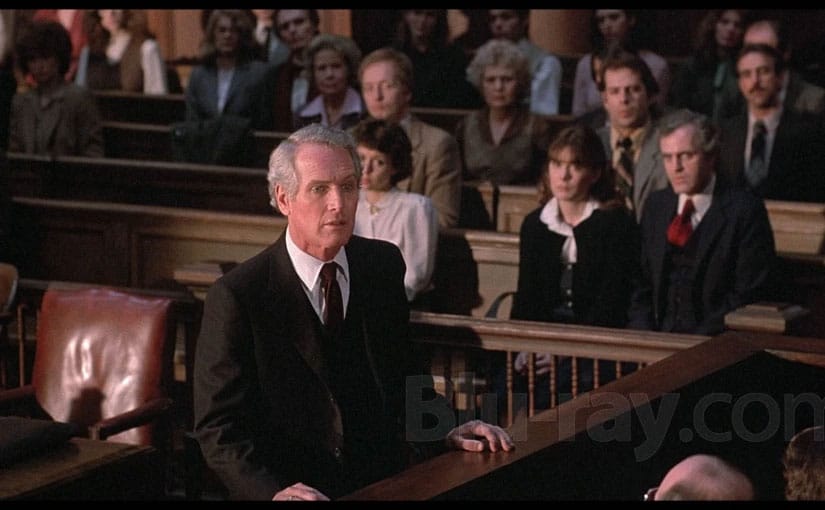Executive Bait & Switch: How To Fight Back with the Unjust Enrichment Claim

Are you a C-level executive and the victim of an Executive Bait and Switch? If so, this article discusses the Unjust Enrichment claim. It’s a claim that included a remedy that is so powerful, it might force the employer to do the right thing.
Before discussing this atomic bomb type remedy, let me sketch out the executive bait and switch situations that sadly I see occurring all too often among CEO, CTO, COO and other C-suite client executives I represent.
The Executive Bait & Switch
You’re a CEO or C-suite executive at the top of your game. A new company seeks you out. They pitch you hard—flattering calls with the board, warm introductions to investors, and an offer too good to refuse.
“You, sir/madam/doctor are the missing ingredient. With your experience and leadership, you’ll take us over the top. Within four years, we’ll have a liquidity event. And with the equity we’re offering, you could be looking at $10–15 million for you and your family.”
You leave your stable role. You relocate your family. You roll up your sleeves and go to work—cleaning up operations, building the team, resetting strategy, and positioning the company for an acquisition or IPO.
You deliver everything they asked for. In fact, you make it look easy. The company gains momentum, investor confidence rises, and success feels imminent.
Then, 11 months in—maybe 12—you’re called in for a meeting.
“We’re going in a different direction.”
Just like that, you’re out. A modest severance is offered. Your equity? Mostly unvested. The promised millions? Gone. But the company? It goes on to thrive—on your roadmap, your team, your results.
They keep the upside. You’re left behind.
Does this story sound familiar to you?
The Claim of Unjust Enrichment
If you or a colleague have been the victim of this kind of Executive Bait and Switch scheme, the remedy I want to introduce to you is Unjust Enrichment.
The Restatement (Third) of Restitution and Unjust Enrichment § 1 (2011)
(October 2024 Update) states the following regarding this remedy.
“A significant tradition within English and American law refers to unjust enrichment as if it were something identifiable a priori, by the exercise of a moral judgment anterior to legal rules. This equitable conception of the law of restitution is crystallized by Lord Mansfield’s famous statement in Moses v. Macferlan, 2 Burr. 1005, 1012, 97 Eng. Rep. 676, 681 (K.B. 1760): ‘In one word, the gist of this kind of action is, that the defendant, upon the circumstances of the case, is obliged by the ties of natural justice and equity to refund the money.’”
“Explaining restitution as the embodiment of natural justice and equity gives
the subject an undoubted versatility, an adaptability to new situations, and (in the eyes of many observers) a special moral attractiveness. Restitution in this view is the aspect of our legal system that makes the most direct appeal to standards of equitable and conscientious behavior as a source of enforceable obligations.”
The Restatement states further,
“Courts in some jurisdictions refer to checklists of factors, such as the following, to identify cases in which the receipt of a benefit gives rise to a liability in restitution. To establish a claim for unjust enrichment, the plaintiff must prove three elements: (1) the plaintiff conferred a benefit upon the defendant; (2) the defendant had an appreciation or knowledge of the benefit; and (3) the defendant accepted or retained the benefit under circumstances making it inequitable for the defendant to retain the benefit without payment of its value.”
Disgorgement: The A-Bomb Remedy
The Restatement (Third) emphasizes that remedies for unjust enrichment are not limited to direct benefits transferred from one party to another. If the defendant profited from the wrongful conduct, they must also disgorge the profits made even if the plaintiff did not suffer a direct loss.
To consider application of the disgorgement remedy, let’s look at several typical scenarios I see in practice.
- Technology – the executive enabled the company to make its technology work in applications that matter to its clientele
- Products – the executive led the company to produce and move its products at the required industrial scale
- Marketing – the executive determined and led market penetration to bring the company to its revenue and profitability targets
- Finance – the executive brought in a new investor or helped close an acquisition
- Management – the executive led the company through a strategic growth phase
You’re hired to lead a company to a defined goal—a liquidity event, major financing round, or operational turnaround. You succeed. Then you’re let go just before the rewards kick in.
Under disgorgement, the court would look to the profits gained by the employer from your services and contribution and requires that employer to disgorge and pay over to you the profits attributable to your services.
Disgorgement in Practice
For a hypothetical example, due to your experience, contacts and leadership, new products are introduced that enable your company to succeed where in the past it failed. The company closes a $400 million sale event. You were recruited with a 2% stock position, which would have meant $8 million on sale. But you are terminated after you orchestrated a full-scale turnaround and everything is in place – on a glide path for that sale that occurs within the year. At termination, you’ve only vested only a portion, get no acceleration, and are forced to sell out at a fraction of what you would have made. So, just $700,000 in your total package from the sale you made possible. However, in a suit with the claim for unjust enrichment, you could hire an expert who might assert that you played a significant role in the company’s rise in value from $100 million when you joined to $400 million at sale. Perhaps with that expert guidance you might seek a material amount, perhaps 20% of the profits ($300 million), a $60 million claim for you as a partial disgorgement of profits that went to others and can be shown to be clearly attributable to your services. That $60 million claim might draw much more attention than $8 million.
In this way, Unjust Enrichment, properly deployed, can become an atomic bomb in the hands of the victimized executive. Unjust Enrichment is so powerful that it can make even the meanest and stingiest company come to the table and eventually do the right thing: pay you fully for all you did for them.
Application of Unjust Enrichment Under the Right Circumstances
Even if a court or jurisdiction offers the executive no past precedent of unjust enrichment recoveries, a successful unjust enrichment with a disgorgement remedy can occur under the right circumstances. Those circumstances could involve a combination of other claims that I have previously written about – detrimental reliance / promissory estoppel, good faith and fair dealing, deviation from past custom and tradition.

Image source: https://2unpaidmoviecritics.com/2022/05/10/the-verdict/ (re-posted here after no indication of copyright protection was provided at the image source.)
To illustrate this point, I close with several links to the 1982 film “The Verdict,” which starred Paul Newman, as plaintiff’s attorney, Frank Glavin.
If your unjust enrichment case went before a jury at trial, as, in this film, a personal injury/medical malpractice case went before a Massachusetts jury, it would be my hope that the jury might potentially award, in effect, a disgorgement / unjust enrichment reward in a manner similar to this jury making an extraordinary award as happened in that personal injury case. I feel that in both cases the jury may potentially take action on behalf of a greatly wronged plaintiff against a defendant who was an especially bad actor – something the jury can and may take into account.
- Trailer – https://www.youtube.com/watch?v=NF-F4ys3hHE
- Witness (“Kept a Copy”) – https://www.youtube.com/watch?v=xp31pTNW3W4
- Witness (“Why would you do that?”) – https://www.youtube.com/watch?v=SyXAd8BXz7o
- Closing Argument – https://www.youtube.com/watch?v=hRkei6fbsg4&t=50s
- Verdict – https://www.youtube.com/watch?v=gID4XCguKVw&list=PLghKY-Hr4jPlZgMf9LPRhhPm3z7a-aQbN
So, if you, a colleague, or friend face an Executive Bait & Switch, it is my hope that Unjust Enrichment may be a remedy that can aid to secure a reasonable settlement.
Have you read?
The World’s Best Medical Schools.
The World’s Best Universities.
The World’s Best International High Schools.
The World’s Best Business Schools.
The World’s Best Fashion Schools.
The World’s Best Hospitality And Hotel Management Schools.
Bring the best of the CEOWORLD magazine's global journalism to audiences in the United States and around the world. - Add CEOWORLD magazine to your Google News feed.
Follow CEOWORLD magazine headlines on: Google News, LinkedIn, Twitter, and Facebook.
Copyright 2025 The CEOWORLD magazine. All rights reserved. This material (and any extract from it) must not be copied, redistributed or placed on any website, without CEOWORLD magazine' prior written consent. For media queries, please contact: info@ceoworld.biz








